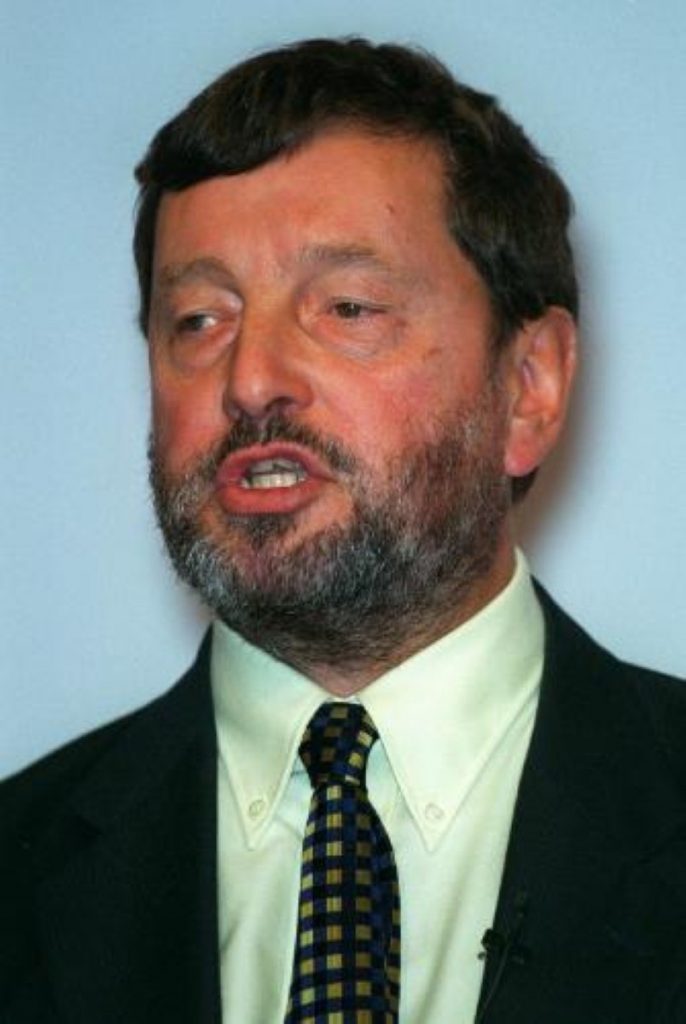Blunkett proposes new law on religious hatred
The Home Secretary has said that he will introduce a new offence of incitement to religious hatred “as soon as possible”.
In a speech to the Institute of Public Policy Research (IPPR) on race equality and community cohesion, David Blunkett said that: “Religious and political extremists are a scourge of modern society who prey on the most vulnerable and insecure.”
The new offence will “help tackle extremists who used religion to stir up hatred in our society.” Mr Blunkett said.
Full details of the new proposals will be included in the Government’s race strategy, due to be published in the autumn.


Mr Blunkett argued that: “We have to face down extremism and racism in all its forms if we are to promote a positive, inclusive sense of British identity and citizenship which newcomers feel welcome to commit to and which established communities feel proud of be part of.
“I am very clear that some of the noisiest and most high profile political and religious extremists in this country have no mandate to speak for the communities they claim to represent and evoke a reaction which plays into the hands of racists. There is a responsibility on all of us to challenge the myths and stereotypes they use which turn fear and insecurity into resentment and prejudice.
“We also need to be clear that in Britain integration is not about assimilation into a common culture so that original identities are lost. We can and should be proud of the sense of nationhood we feel to the nations within Britain as well as to Britain as a whole. In short, our approach is pragmatic, based on common sense, allowing people to express their identity within a common framework of rights and responsibilities.
“We want people from all backgrounds to be proud of their identity – and to have respect for the identity of others. Government can support this by encouraging a positive and active notion of British citizenship and by ensuring new migrants engage with the communities in which they live. This is an important part of tackling racism and putting in place foundations that support a strong and diverse Britain.
Mr Blunkett also announced that there will be a new English language test for those wishing to apply for British citizenship.
In his speech Mr Blunkett highlighted the contribution of ethnic minorities to the UK, saying: “The facts are that the eight per cent of our population who describe themselves as being from black and minority ethnic communities have made a disproportionate contribution to enriching every aspect of life in Britain – from economic success to the arts, music, sport, education and science.
Proposals to include a specific offence of “inciting religious hatred” were first included in the Government’s Anti Terrorism, Crime and Security Bill, which was introduced in the aftermath of the September 11th attacks in New York.
However Mr Blunkett dropped the plans in a compromise deal to ensure that the bulk of the legislation was passed.
At the time both MPs and Peers raised concerns that the legislation could prevent legitimate religious debate or criticism or jokes about another’s religion. Blackadder star Rowan Atkinson claimed at the time that the law would have prevented films like “The Life of Brian” being made.
Many in the Islamic communities have increasingly been calling on the Government to take action against “Islamphobia”, claiming that there has been an increase in verbal attacks and physical violence since the beginning of the War on Terror. At the beginning of June the Commission of British Muslims and Islamophobia (CBMI) said that prejudice against Muslims in widespread in the United Kingdom.
The commission’s chairman, Dr Richard Stone said: “Government has not taken on board, in a deep way, the anti-Muslim prejudice in this country.”
The thinktank lists examples of overt public prejudice, such as attacks on Muslims or mosques.
In addition it warns that prejudice is institutionalised, for example in “anomalies in public order legislation, such that Muslims are less protected against incitement to hatred than members of certain other religions”.
Of particular concern to the CBMI was the portrayal of Muslims within the media.
Noting that a high proportion of asylum seekers are Muslims, they say “Demonisation of refugees by the tabloid press is therefore frequently a coded attack on Muslims.
“For the words ‘Muslim’, ‘asylum-seeker’, ‘refugee’ and ‘immigrant; become synonymous and interchangeable with each other in the popular imagination.”
Among the report’s recommendations is that “legal sanctions against religious discrimination in employment and service delivery are on the statute book”.
Current race hate laws protect religious groups that can also be defined as an ethnic community, such as Jews or Sikhs.












